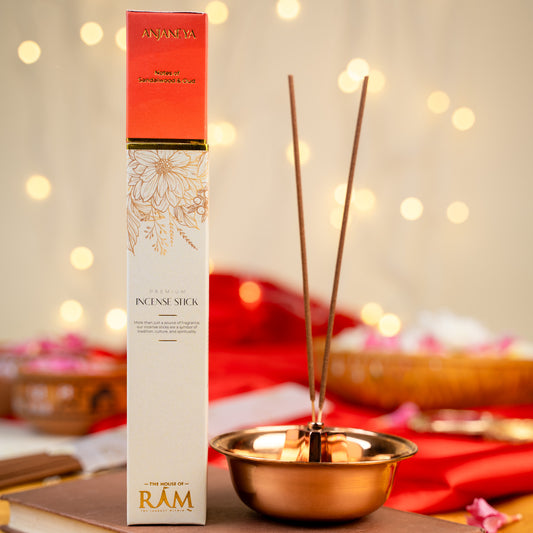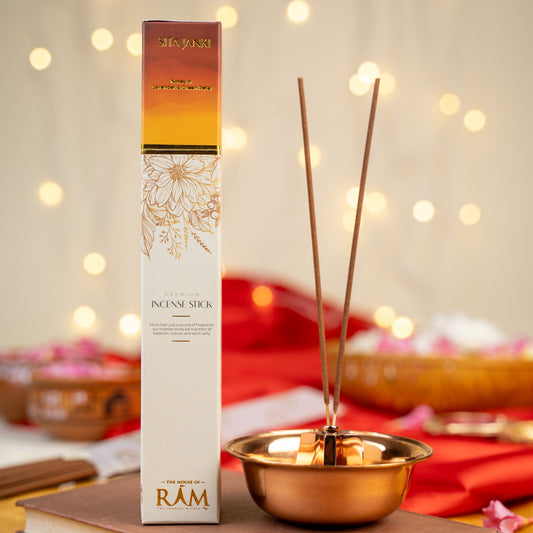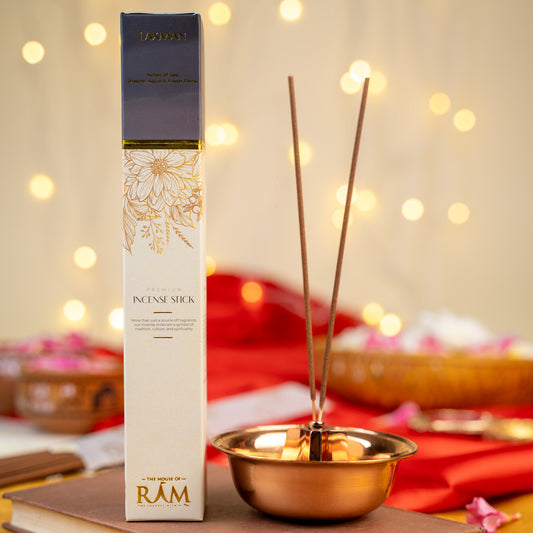Introduction
Tulsi (Ocimum sanctum), also known as holy basil has significant medicinal, cultural and religious importance in many parts of the world especially India. It is a symbol of holistic well being across cultures. The word Tulsi is derived from Sanskrit, which means the ‘matchless one’. Tulsi has been called the most sacred plant on earth in the ancient Vedic Puranas it is also believed to be the incarnation of Goddess Laxmi. The uses and existence of Tulsi dates back to
ancient times. It is believed to have originated in the Indian subcontinent and has been mentioned in ancient Hindu scriptures like the Rigveda, written around 1500 BCE, where it was revered as a sacred plant. Check out the blessed Tulsi Rakhis; bracelets by The House of Ram infused with purity and goodness of Tulsi.
History
Tulsi holds a significant place in Hindu mythology. According to one popular legend, Tulsi is considered to be an incarnation of the goddess Vrinda or Tulsi Devi. She was married to the demon king Jalandhar, and her chastity and devotion to Lord Vishnu made her invincible. When Jalandhar was killed in a battle, she cursed Lord Vishnu to become a stone (Shaligram) and then, as a counter-curse, was turned into the Tulsi plant. Thus, Tulsi became a symbol of purity, devotion, and protection.
Cultural significance
Tulsi is grown in homes and temples and is considered an auspicious and
sacred plant. Hindus believe that the plant brings positive energy and prosperity.
Religious significance: Tulsi has immense spiritual significance and plays a vital role in all Hindu ceremonies and rituals. Tulsi beads are also used as prayer beads in malas
Medicinal properties
It is considered to be an adaptogen, meaning it can cope with stress and promote over all well being. Tulsi leaves are rich in essential oils, antioxidants and
phytochemicals. Tulsi is an integral part of Ayurveda, the traditional Indian system of medicine
Culinary uses
Fresh or dried Tulsi leaves are used to add a distinct flavor to soups, salads and
sauces. Tulsi leaves are also used in herbal aromatic tea consumed for its soothing and refreshing properties. Tulsi continues to be an essential herb in India and other parts of the world due to its immense benefits and medicinal properties. Its widespread use has contributed to its popularity as a versatile herb.
Tulsi continues to be an essential herb in India and other parts of the world due to its immense benefits and medicinal properties. Its widespread use has contributed to its popularity as a versatile herb.












